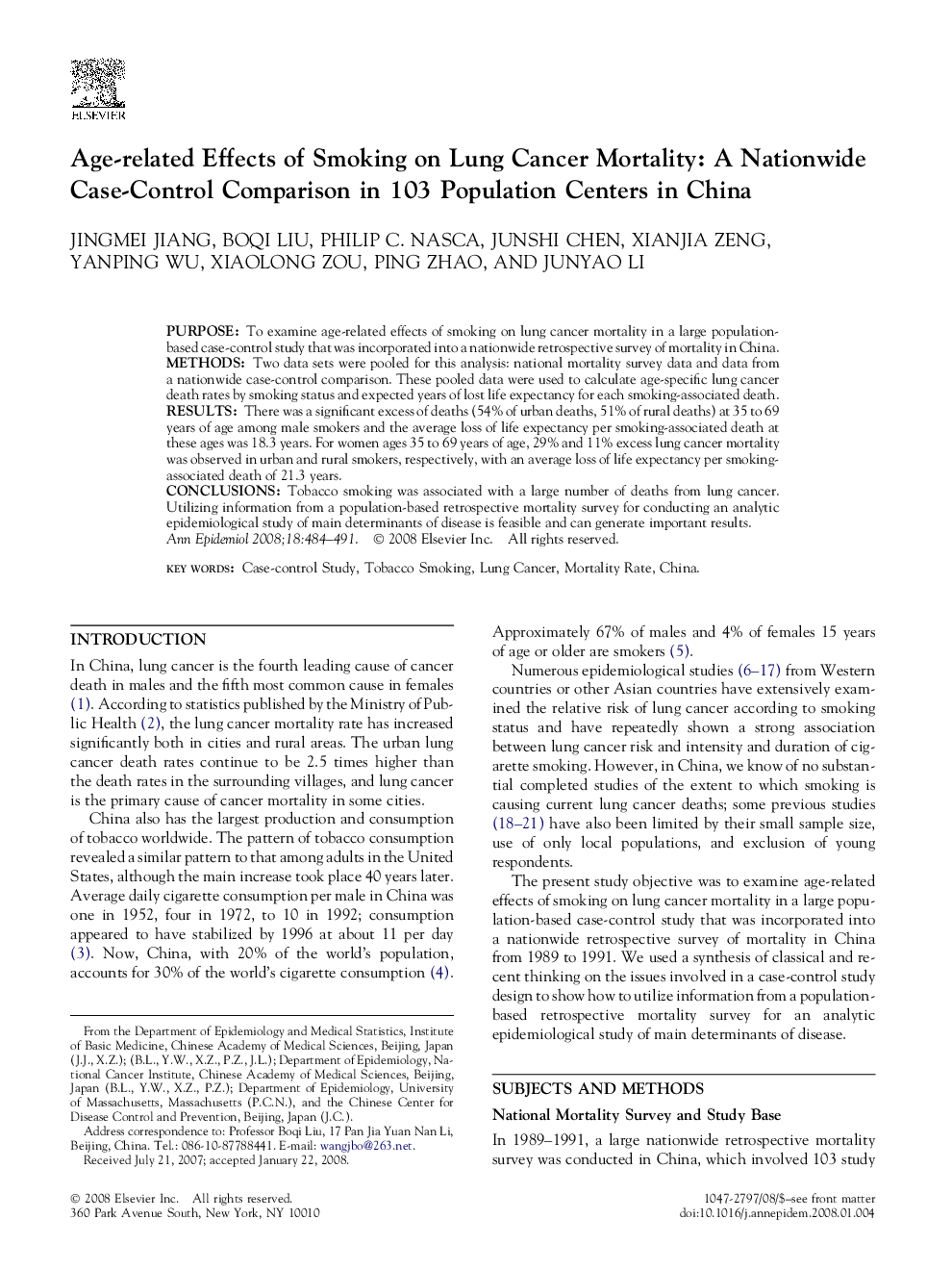| Article ID | Journal | Published Year | Pages | File Type |
|---|---|---|---|---|
| 3445303 | Annals of Epidemiology | 2008 | 8 Pages |
PurposeTo examine age-related effects of smoking on lung cancer mortality in a large population-based case-control study that was incorporated into a nationwide retrospective survey of mortality in China.MethodsTwo data sets were pooled for this analysis: national mortality survey data and data from a nationwide case-control comparison. These pooled data were used to calculate age-specific lung cancer death rates by smoking status and expected years of lost life expectancy for each smoking-associated death.ResultsThere was a significant excess of deaths (54% of urban deaths, 51% of rural deaths) at 35 to 69 years of age among male smokers and the average loss of life expectancy per smoking-associated death at these ages was 18.3 years. For women ages 35 to 69 years of age, 29% and 11% excess lung cancer mortality was observed in urban and rural smokers, respectively, with an average loss of life expectancy per smoking-associated death of 21.3 years.ConclusionsTobacco smoking was associated with a large number of deaths from lung cancer. Utilizing information from a population-based retrospective mortality survey for conducting an analytic epidemiological study of main determinants of disease is feasible and can generate important results.
